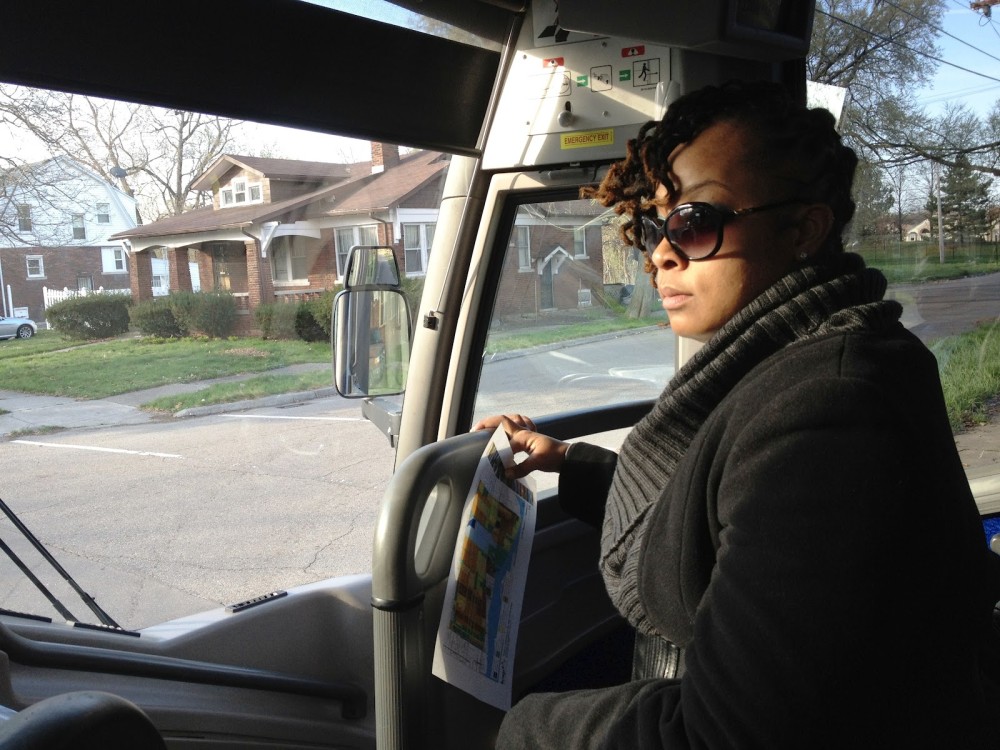By Rochelle Riley
Detroit Free Press.
Khalil Ligon thinks the Kresge Foundation must have been reading her mind.
The grassroots activist and consultant, who lives in the City Airport neighborhood in northeast Detroit, has been guiding a group of entrepreneurs through the Better Block movement, part of a national effort to create a safe, walkable urban neighborhood, one block at a time.
It was pure coincidence that she and a group of friends and neighbors began their weeklong cleanup of their chosen block the same day that the Kresge foundation announced plans to donate $5 million more directly to neighborhoods.
Ligon calls it serendipity.
“If we were able to get money of this scale,” she said of the $50,000 to $150,000 grants, “that would be a dream come true.”
Over in District 6, where Angie Reyes fights to shrink the gap between her neighbors and other more successful Detroiters, she said there was no brick and mortar project that she wants to spend $150,000 on. Instead, she said, she would rather work on bridging that gap.
“Our whole issue is getting people trained in our community to be able to take advantage of higher skilled jobs,” said Reyes, executive director of the Detroit Hispanic Development Corp. “But the state funding for adult education keeps getting cut so there is a huge gap between where people are in our community. All of the ESL (English as a Second Language) programs are packed and have waiting lists. And after you learn English, then what? You still have to read and write. Without the resources to bridge that gap. … Working in the city of Detroit is like working in quicksand, because the landscape keeps changing under your feet while you’re working.”
The city was abuzz with ideas about how to get a piece of the new funding that Kresge has marked: For Neighborhoods Only.
The funding was announced against a backdrop of hope and frustration as residents of neighborhoods outside Midtown and downtown have complained publicly about being left out of the “new Detroit.”
Kresge President and CEO Rip Rapson said Sunday said he listened to recent conversations about “how Detroit is reimagining and reclaiming its place in the world, (and) so often the story passed right over the neighborhoods.”
“So much attention is being paid to Woodward and downtown,” he said. “It just seemed to us that we really needed to remind people that the real long-term energy of the city is rooted in residents and that we can build infrastructure and scaffolding of all different kinds, but at the end of the day, if residents don’t have the tools and resources they need to determine their own trajectory, this is all built on sand.”
That was music to the ears of grassroots leaders searching for funding for their ideas.
Ligon and her small cleanup crew tackled weeds and dirt outside a block that represents the best and worst of Detroit: a mattress store in business for 20 years and computer repair shop bookend two buildings in different states of despair.
One is boarded up and totally abandoned. The other, a video store, sits like in a scene from a zombie movie, the tapes and CDs and DVDs still on the shelves. Posters on the windows advertise “The Hangover Part II” and “Journey to the Center of the Earth 2.”
Ligon said she hopes to erect pop-up shops in front of the existing buildings to bring foot traffic to the area. That, she said, would shore up existing businesses and possibly entice new business into the vacant spaces.
buy cytotec generic cytotec without prescription online
And Reyes? She isn’t looking to build up a neighborhood. She wants to build up people.
“Bricks and mortar is important in terms of the environment,” she said. “It’s pretty critical. But a community has got a lot of assets. We have a lot of commerce that meets our community needs. We don’t have the food desert that exists in other parts of the city. But it’s more the development at the human level and organizing people to advocate for change. That is where the bigger gap is.”
If her group got a Kresge grant — and they plan to apply — she said they “would probably spend it on working on bridging some of the gaps that the kids experience, huge gaps in meeting the needs of children, educational gaps, gaps of kids coming out of the juvenile justice system. If we don’t secure our future, we might as well hang it up.”














































































































































































































































































































































































